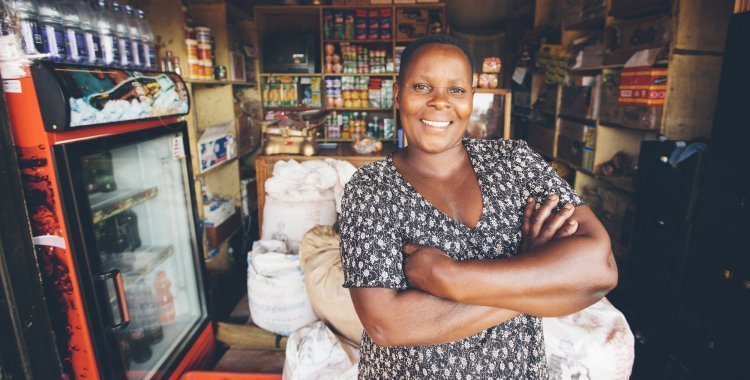Jules Ngakam, who spoke this Tuesday at the opening of the financial series of the Affirmative Financial Action for Women in Africa (AFAWA), said that this decision is part of the efforts to empower the capacity of girls and women entrepreneurs in Africa.
"With this guarantee program we are going to share the burden and reduce the risks of this lending activity. Normally when we work with banks, we assume 50 percent of the risks, for every hundred dollars you lend we take 50 percent of the risks and in this program we are going to keep 75 percent of the risks", he stressed.
The official highlighted that the AGF is committed to working with financial institutions through AFAWA, its guarantees program.
According to Jules Ngakam, the AGF also provides technical support to financial partner institutions, so that they can develop the loan portfolio for women, stressing that, on the African continent, they are the ones who have greater participation in economic activity, however, less contribution to the Domestic Product (GDP), "because most of these women are in the informal sector".
"What we want to see here is how we can work together so that women continue with their formalized activities, in order to participate 100 percent in the country's wealth and consequently in the GDP", he underlined.
AFAWA is a pan-African initiative of the African Development Bank (ADB) which aims to close the estimated 42 billion dollars funding gap facing women entrepreneurs in Africa.
In January 2021, the AfDB and the AGF signed a 250 million dollars risk-sharing agreement, through AFAWA, with the aim of unlocking up to 2 billion dollars to finance SMEs owned by African women, through financial institutions .
The risk-sharing facility is supported by a 25 million dollars technical assistance grant to the AGF to enhance the capacity of financial institutions benefiting from the facility to better respond to women's needs, as well as assist them in increasing their bank capacity.
By 2026, AFAWA has a goal of unlocking 5 billion dollars in funding for women-owned and managed SMEs, with the initiative supported by AfDB partners and donors, the G7 countries, as well as Sweden, the Netherlands, and the Women Entrepreneurs Finance Initiative (We-Fi).
In his speech, the deputy governor of the National Bank of Angola (BNA), Pedro e Silva, recommended that the technical assistance phase precede the financing one.
Pedro e Silva stressed that the recommendation was based on the fact that, with regard to SME credit in the Angolan economy, one of the constraints identified on the side of commercial banks is the lack of organized accounting.
"Equipping our entrepreneurs with management knowledge, in line with best practices, is a critical success factor for SMEs led by women in Angola", he said.
Citing data from the National Institute of Statistics (INE), Pedro e Silva underlined that the employed population aged 15 or over is estimated at 9.6 million people, of which 6.1 million are women, representing 52 percent of the employed population.
The same study, according to the deputy governor of the BNA, reveals that among employed women, 88 percent are in the informal market.
"By sharing these statistics, I would like to leave a challenge to the ADB and the FGA, that they reflect on the creation of an initiative similar to AFAWA, more oriented towards women who work in the informal market", he appealed.
"In this reflection, I suggest that financial intermediaries do not confine themselves to banking financial institutions, but that they consider themselves non-banking financial institutions", added the official.
According to Pedro e Silva, during this week, the BNA is analyzing the proposed notices for the formation of microcredit societies and credit cooperatives, and a new microfinance law is also being studied.
"It is these non-banking financial institutions that will be able to play an important role in the inclusion of more and more women in the Angolan financial system", advanced Pedro e Silva, indicating as a type of non-banking financial institution that can serve to channel ADB solutions to the informal economy, 'mobile money' institutions, with a vast network of customers in the Angolan economy.







